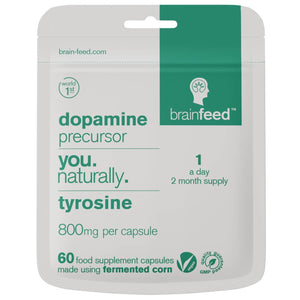Growth mindset vs fixed mindset: 4 tips on how to be more competitive
filter
Competitiveness is a trait that is often associated with success and achievement of one’s goals. Is being competitive good or bad? Competitiveness is the drive to be the best, to achieve more, and to constantly improve. Competitiveness can also be a double-edged sword. It can lead to stress, a focus on short-term gains rather than long-term growth, and unethical behaviour. In this article, we will explore how to develop a growth mindset that can help individuals harness their competitiveness in a positive way, leading to greater success and fulfilment.
Harnessing competitiveness: growth mindset vs fixed mindset
Competitiveness can be a powerful motivator or it can lead to less desirable outcomes. Why are people competitive and how it can help you be more successful? By harnessing competitiveness in a positive way, individuals and organisations can achieve their goals and succeed in a changing world. A study on women’s youth handball teams from Ukraine showed that competitiveness is associated with the motivation to succeed[1 Trusted Source 2021 - Journal of Physical Education and Sport Human study Psychological factor of competitiveness of the women's youth handball team ] . So, how to get all the positives out of competitiveness? A shift from a fixed to a growth mindset is in order. They are two different ways of thinking about yourself and life in general. Overall, a fixed mindset can lead to jealousy, discouragement, and a lack of motivation to improve[2 Trusted Source 2019 - Nature Human study A national experiment reveals where a growth mindset improves achievement ] . What is a growth mindset? It’s a way of thinking and a worldview that boosts personal and professional success, as it promotes learning, resilience, and a positive outlook on challenges and feedback[2 Trusted Source 2019 - Nature Human study A national experiment reveals where a growth mindset improves achievement ] . Let’s have a look at an example. Let’s say you’re working on a big project at work. The launch goes south. Having a fixed mindset, you’ll feel like all your effort was wasted. From then on, you’ll focus on stuff you think you’re good at. Having a growth mindset, you’ll be grateful for everything you’ve learned. You’ll see this failure as a temporary setback and an opportunity for personal growth. Wondering, how to shift your mindset? Here are 4 tips on how to be more competitive and successful.
1. One simple change to develop a growth mindset
The growth mindset is a concept developed by psychologist Carol Dweck, a psychology professor at Stanford University, who spent several decades studying how people react to challenges they face[3 Trusted Source Ness Labs 3rd-party source From fixed mindset to growth mindset: the complete guide ] . She believes that a simple word yet can help you step out of your fixed comfort zone and help you start growing today. As she said in her TED talk: “Just the words "yet" or "not yet," we're finding, give kids greater confidence, give them a path into the future that creates greater persistence”[4 Trusted Source 2014 - TED 3rd-party source The power of believing that you can improve ] . Using the word yet when facing challenges benefits you as it allows you to persevere more. It helps you remind yourself of all the times you managed to deal with a tough situation before - you can do it again. When you’re struggling just remember that you are yet to master a certain skill, but you will eventually.
2 Setting goals and focusing on progress
Another key aspect of the growth mindset is the focus on progress rather than perfection. When setting goals, it’s important to make sure they’re challenging, achievable and measurable. Focus on making progress towards those goals rather than achieving them promptly and perfectly. Analyse the steps you’re making towards goals and measure them so that you can track your progress and stay motivated. An extensive literature review showed that monitoring goal progress is an effective self-regulation strategy that promotes behaviour change, meaning it helps you modify your behaviour to become more goal-attainable[5 Trusted Source 2016 - Psychological Bulletin Systematic and meta-analysis Does monitoring goal progress promote goal attainment? A meta-analysis of the experimental evidence. ] . The pleasure and reward chemical dopamine can help with that as it boosts your motivation to go and act in a way that will get you closer to your goal[6 Trusted Source 2016 - Neuron Research evaluation Dopamine Does Double Duty in Motivating Cognitive Effort ] , [7 Trusted Source 2020 - eLife Human study Dopamine promotes instrumental motivation, but reduces reward-related vigour ] . To get your body to help you, make sure you get enough of dopamine’s building block tyrosine through your protein-rich diet like eggs and nuts or opt for high-quality supplements[8 Trusted Source 2019 - Psychological Research Human study Food for thought: association between dietary tyrosine and cognitive performance in younger and older adults ] , [9 Trusted Source MyFoodData 3rd-party source Foods highest in Tyrosine ] . brain feed’s world's 1st natural 800mg dopamine booster capsule from fermented corn helps your body produce the dopamine you need. Get it for the first time with 15% off using code ‘NEW15’ at checkout.
3 Embracing a misstep as a learning opportunity
We learn from success, however, we also learn from setbacks. One of the key beliefs of the growth mindset is the idea that a misstep is an opportunity for growth and learning. Individuals with a growth mindset see setbacks as a natural part of the learning process and are more likely to bounce back from them and try again[2 Trusted Source 2019 - Nature Human study A national experiment reveals where a growth mindset improves achievement ] . The process of learning from failure will help them cognitively cope better with setbacks, regulate unpleasant emotions, seek help, enhance interest, and develop skills and knowledge in the future[10 Trusted Source 2004 - Journal of Education for Teaching Human study Learning to allow temporary failure: potential benefits, supportive practices and teacher concerns ] . A very practical approach to this is a slight change in your vocabulary; instead of using the word failure try using the word learning. Then observe how your emotions toward setbacks change and allow you to really learn from your actions and implement that in the future.
4 Practising self-compassion
Finally, it is important to practise self-compassion when harnessing competitiveness in a positive way. This means being kind and understanding towards oneself, even in the face of setbacks or harsh critiques. Multiple studies on adolescents, adults and older adults support the claim that people who practice self-compassion score higher on questionnaires about their well-being[11 Trusted Source 2015 - The Journal of Positive Psychology Human study The influence of self-compassion on emotional well-being among early and older adolescent males and females ] , [12 Trusted Source 2016 - Journal of Adult Development Human study Self-Compassion and Psychological Well-Being in Older Adults ] , [13 Trusted Source 2013 - The Journal of Psychology Research evaluation The Role of Self-Compassion in Physical and Psychological Well-Being ] . And guess what happens when people feel good? A study on entrepreneurs in the Netherlands showed that those who experience more well-being are also more successful in their business[14 Trusted Source 2018 - Journal of Happiness Studies Human study Well-Being, Personal Success and Business Performance Among Entrepreneurs: A Two-Wave Study ] . So, instead of letting the critiques bring you down, and constantly comparing yourself to others and seeking other people’s approval, focus on the steps you’ve already taken towards your goals and celebrate those little wins with your friends and family. By practising self-compassion, you can use your competitiveness to drive growth and development, while also being kind and understanding towards yourself.
By adopting a growth mindset, you cultivate a supportive environment within yourself that helps you achieve greater success and fulfilment.
References
[1] Popovych, I. S., Blynova, O. Y., Nosov, P., Zinchenko, S., & Kononenko, O. (2021). Psychological factor of competitiveness of the women’s youth handball team. Journal of Physical Education and Sport, 21(1), 227–235. https://efsupit.ro/images/stories/ianuarie2021/Art%2030.pdf
[2] Yeager, D. S., Hanselman, P., Walton, G. M., Murray, J. S., Crosnoe, R., Muller, C., Tipton, E., Schneider, B., Hulleman, C. S., Hinojosa, C. P., Paunesku, D., Romero, C., Flint, K., Roberts, A., Trott, J., Iachan, R., Buontempo, J., Yang, S. M., Carvalho, C. M., … Dweck, C. S. (2019). A national experiment reveals where a growth mindset improves achievement. Nature, 573(7774), 364–369. https://www.nature.com/articles/s41586-019-1466-y
[3] Le Cunff, A. (n.d.). From fixed mindset to growth mindset: the complete guide. Ness Labs. https://nesslabs.com/growth-mindset
[4] Dweck., C. (2014). The power of believing that you can improve. TED. https://www.ted.com/talks/carol_dweck_the_power_of_believing_that_you_can_improve/
[5] Harkin, B., Webb, T. L., Chang, B. P. I., Prestwich, A., Conner, M., Kellar, I., Benn, Y., & Sheeran, P. (2016). Does monitoring goal progress promote goal attainment? A meta-analysis of the experimental evidence. Psychological Bulletin, 142(2), 198–229. https://psycnet.apa.org/doiLanding?doi=10.1037%2Fbul0000025
[6] Westbrook, A., & Braver, T. S. (2016). Dopamine Does Double Duty in Motivating Cognitive Effort. Neuron, 89(4), 695–710. https://www.cell.com/neuron/fulltext/S0896-6273(15)01131-9?_returnURL=https%3A%2F%2Flinkinghub.elsevier.com%2Fretrieve%2Fpii%2FS0896627315011319%3Fshowall%3Dtrue
[7] Grogan, J. P., Sandhu, T. R., Hu, M. T., & Manohar, S. G. (2020). Dopamine promotes instrumental motivation, but reduces reward-related vigour. ELife, 9, e58321. https://elifesciences.org/articles/58321
[8] Kühn, S., Düzel, S., Colzato, L., Norman, K., Gallinat, J., Brandmaier, A. M., Lindenberger, U., & Widaman, K. F. (2019). Food for thought: Association between dietary tyrosine and cognitive performance in younger and older adults. Psychological Research, 83(6), 1097–1106. https://link.springer.com/article/10.1007/s00426-017-0957-4
[9] Foods highest in Tyrosine (n.d.). MyFoodData. https://tools.myfooddata.com/nutrient-ranking-tool/tyrosine/all/highest/grams/common/no
[10] Alfi, O., Assor, A., & Katz, I. (2004). Learning to allow temporary failure: potential benefits, supportive practices and teacher concerns. Journal of Education for Teaching, 30(1), 27–41. https://www.tandfonline.com/doi/full/10.1080/0260747032000162299
[11] Bluth, K., & Blanton, P. W. (2015). The influence of self-compassion on emotional well-being among early and older adolescent males and females. The Journal of Positive Psychology, 10(3), 219–230. https://www.tandfonline.com/doi/abs/10.1080/17439760.2014.936967
[12] Homan, K. J. (2016). Self-Compassion and Psychological Well-Being in Older Adults. Journal of Adult Development, 23(2), 111–119. https://link.springer.com/article/10.1007/s10804-016-9227-8
[13] Hall, C. W., Row, K. A., Wuensch, K. L., & Godley, K. R. (2013). The Role of Self-Compassion in Physical and Psychological Well-Being. The Journal of Psychology, 147(4), 311–323. https://www.tandfonline.com/doi/abs/10.1080/00223980.2012.693138
[14] Dijkhuizen, J., Gorgievski, M., Van Veldhoven, M., & Schalk, R. (2018). Well-Being, Personal Success and Business Performance Among Entrepreneurs: A Two-Wave Study. Journal of Happiness Studies, 19(8), 2187–2204. https://link.springer.com/article/10.1007/s10902-017-9914-6


 alertness
alertness
 cognition
cognition
 sleep
sleep
 wellbeing
wellbeing


Leave a comment
Open tab